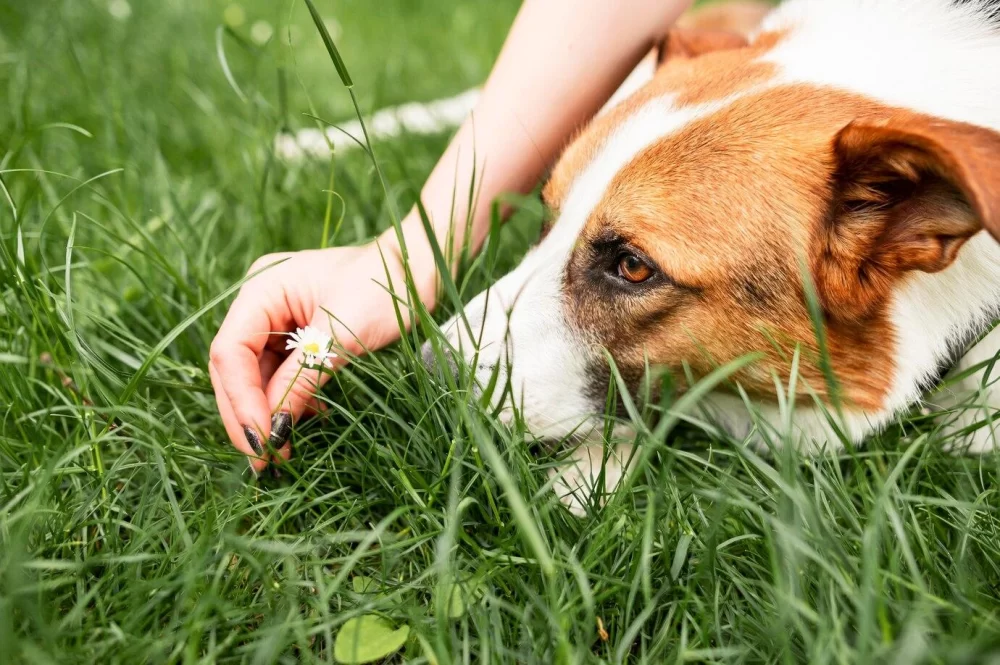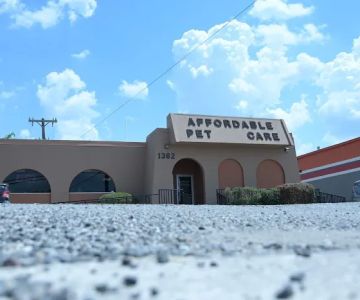- What Are Pet Food Allergies?
- Signs of Food Allergies in Pets
- How to Manage Food Allergies in Pets
- Creating a Safe Diet for Your Pet
- The Role of Hidden Brook Veterinary
What Are Pet Food Allergies?
Food allergies in pets, particularly dogs and cats, occur when their immune system reacts abnormally to specific ingredients in their food. Common allergens include proteins like beef, chicken, and dairy products. The body's immune system treats these proteins as harmful invaders, triggering an allergic reaction. This immune response can lead to various health issues, such as skin irritations, digestive problems, and even respiratory distress.
Food allergies in pets are more common than many pet owners realize. Unlike food intolerances, which cause digestive discomfort, food allergies can cause severe reactions and need proper management. If you notice your pet showing signs of discomfort after eating, it's important to seek advice from a veterinarian who can help you identify potential allergens.
Signs of Food Allergies in Pets
Recognizing food allergies in pets is the first step toward helping them feel better. Pets with food allergies may exhibit a range of symptoms, including:
- Itchy Skin and Rashes: Persistent scratching, biting, or licking, especially around the face, paws, and belly.
- Digestive Issues: Vomiting, diarrhea, and bloating can be signs of an allergic reaction in pets.
- Ear Infections: Frequent ear infections or inflammation may indicate a food allergy, especially in dogs.
- Hair Loss: Chronic scratching or licking can lead to bald patches or thinning fur.
- Swollen Eyes or Face: Swelling around the eyes, muzzle, or face can indicate an allergic reaction.
If you notice any of these symptoms, it’s important to consult with your veterinarian. They may recommend an elimination diet or allergy testing to pinpoint the specific allergens affecting your pet.
How to Manage Food Allergies in Pets
Managing food allergies in pets requires a combination of dietary adjustments, symptom management, and long-term planning. Here's a step-by-step approach to managing your pet’s food allergies:
- Elimination Diet: One of the most effective ways to identify allergens is through an elimination diet. This involves feeding your pet a novel protein source (e.g., venison or rabbit) and avoiding common allergens like beef, chicken, and grains for several weeks. During this period, it's crucial to avoid any treats or table scraps to ensure accurate results.
- Work with Your Veterinarian: Your veterinarian can provide guidance on selecting the right diet and may suggest allergy testing or food trials. It’s important to work closely with them to identify the specific allergens and find the best treatment plan.
- Anti-Inflammatory Medications: For pets suffering from itching or other allergic reactions, your vet may recommend anti-inflammatory medications to help reduce symptoms. This can offer relief while you work on eliminating allergens from their diet.
- Regular Follow-ups: Once you’ve identified the allergen, it’s essential to schedule regular check-ups with your vet to monitor your pet’s condition. Over time, your pet’s needs may change, and adjustments may be required.
Creating a Safe Diet for Your Pet
Creating a safe diet for a pet with food allergies involves choosing foods that are both safe and nutritious. Start by consulting with your veterinarian to determine which ingredients to avoid. Some pet owners opt for specialized commercial hypoallergenic foods, which are designed to minimize allergic reactions. Additionally, many pets thrive on homemade meals made from limited ingredients, such as boiled chicken and rice, although this should always be done under veterinary supervision to ensure balanced nutrition.
Consider rotating proteins to avoid developing sensitivities to a single type of meat, and always read ingredient labels carefully. Look for pet foods that are free from common allergens like corn, soy, and gluten, as these are frequent culprits in food allergies. Brands like Hidden Brook Veterinary offer a variety of allergy-friendly pet foods that can help manage your pet’s condition.
The Role of Hidden Brook Veterinary
At Hidden Brook Veterinary, we understand the importance of providing the best care and products for pets with food allergies. Our team of experienced veterinarians can help you identify allergens and guide you in creating a tailored diet plan for your pet. We also offer a range of allergy-friendly food options and supplements designed to support your pet's health and well-being. By choosing Hidden Brook Veterinary, you ensure that your pet receives the highest standard of care and access to the best resources available.












